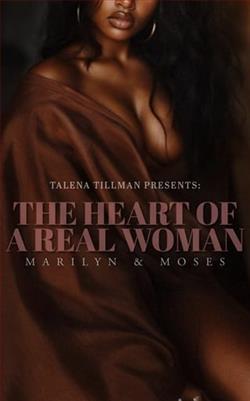Page 1 of Badlands
1
August 2020; precise date uncertain
THE WOMAN PAUSEDand raised her head, looking over the wavering landscape toward the horizon. She blinked, then blinked again, dazzled by the light. As far as she could see lay a land dotted with hoodoo rock formations: spires and domes of rock, giant boulders balancing on slender stems, trembling and ghostly in the heat. This madness of rock and sand rose into a burning sky dominated by the implacable sun. She could see no traces of life: no trees, no grass, nothing beyond a few stunted prickly pear cacti hugging the sand, shriveled up, dead, more spines than flesh.
The woman lowered her head and continued walking, concentrating on placing one foot in front of the other, always northward, where she knew her destination lay. If only she could get there soon, she would be safe.
She finally understood the expressionraging thirst. She thought she had been thirsty before, sometimes very thirsty; but that had been nothing. Nothing. She thought of the Coleridge poem she’d taught so often in English lit it had become a drone in her head. This was what that Ancient Mariner must have feltwatching the very boards of his ship shrink under the sun. The thirst that was upon her now was one that seized her mind, refused to let her think of anything else. She could feel her pulse thundering in her temples; the muscles of her legs were shaky and trembling. Her mouth had dried up many miles back, and now her tongue was cracking and swelling. She could taste the iron of blood.
But to stop now would be the worst possible mistake. She had to keep walking.
To get her mind off the thirst, she tried recalling the last few days, but the memories would come back only in pieces: long, dusty bus rides; furtive traveling by night; the air-conditioned Walmart with its racks of cheap clothes; the shabby gas-station restrooms and McDonald’s dumpsters. She recalled burning her money, watching with fascination as the twenty-dollar bills wrinkled in curlicues of flame. The phone had been harder to destroy; in the end, its innards had nevertheless crackled and popped under a burning glaze of lighter fluid.
One foot in front of the other.
A sudden surge of dizziness forced her to brace one hand against a rock. She took a deep breath, let it out slowly. The sun stopped wheeling overhead, returning to a fixed position, a hole of omnipotent heat punched through the fabric of the sky. She spat out the blood weeping from her tongue and continued on.
All she had to do was endure. She tried to say it out loud,endure, but no sound emerged beyond a breathy hiss. It was hot, brutally hot, but nowhere was it so hot as at ground level. She could feel it through the soles of her running shoes. It was a miracle they weren’t actually melting. And, in fact, maybe they were melting: she had once read that in the desert, in full sun, the ground temperature could exceed a hundred and fifty degrees.
Time passed. She walked on. And then came to a tottering stop, feeling a rush of… what?
Of what? She couldn’t articulate what she felt. Everything was so different now. Here in this inferno, it was as if she’d already begun her transformation. The way she felt now was different from just a quarter of an hour before—and light years from the beginning, when she first realized she’d lost sight of a road.
Deliverance. That was the one word that echoed louder than anything else in her mind: louder than the baking heat, louder than even the dreadful thirst. Even now it rose before her.Deliverance.
She could feel the anvil of the sun directly on her head. She counted ten steps forward.
She took off her shirt, peeling it off over her head, and dropped it.
Ten more steps.
She unhooked her bra and shrugged it off. The radiation of the sun now penetrated into her skin.
As she reached for the button of her shorts, she saw movement out of the corner of her eye. She swiftly moved and crouched behind a rock: she’d already seen many things that were merely tricks of her sun-blind vision, but she had to be sure.
This time, it was no phantom or mirage. There was the dot of a person in the distance.
How strange: out in the middle of nowhere, a woman was herding a small flock of sheep. She was maybe a mile away and headed in the opposite direction, and she’d become visible only because she was climbing a low rise with her sheep, taking them over the brow of a ridge.
Had the woman seen her?
She waited, hiding. Nothing. After a while, once she was sure the woman was gone, she eased back up. She unbuttoned hershorts and took them off, dropping them, following with her panties.
The running shoes came off next, and finally the socks. When she placed her bare feet on the hot sand, she felt a sudden, searing pain so excruciating she almost fell to her knees—but she pushed this away as best she could, focusing instead on clenching her last possessions: the objects that, unlike things of this world—money, clothes—she could not,mustnot, give up.
It was like walking on fire. Her body, not her brain, warned her that this could not last long. But there was no reason to be afraid, no reason at all.
One step. Another.
And then, with unexpected abruptness, her legs gave way and she fell to her knees. Her bare skin hit the ground like meat dropping on a searing griddle. She screamed involuntarily, then fell back, writhing in a useless attempt to escape the heat, every fresh contact with the sand scorching anew, as she felt her skin crack and pop. Fluid sprang out from her skin, but it was like no sweat she’d ever experienced. It made a hissing sound. Through a screen of agony she realized she was cooking.Her body was cooking…
The screams stopped. There was a brief flurry of echoes before silence fell over the landscape once again. Her body went slack against the sand in a dreadful mockery of ease as the first stage of postmortem change—primary relaxation of the musculature—began.
Only her fists remained clenched.
2
Present day















